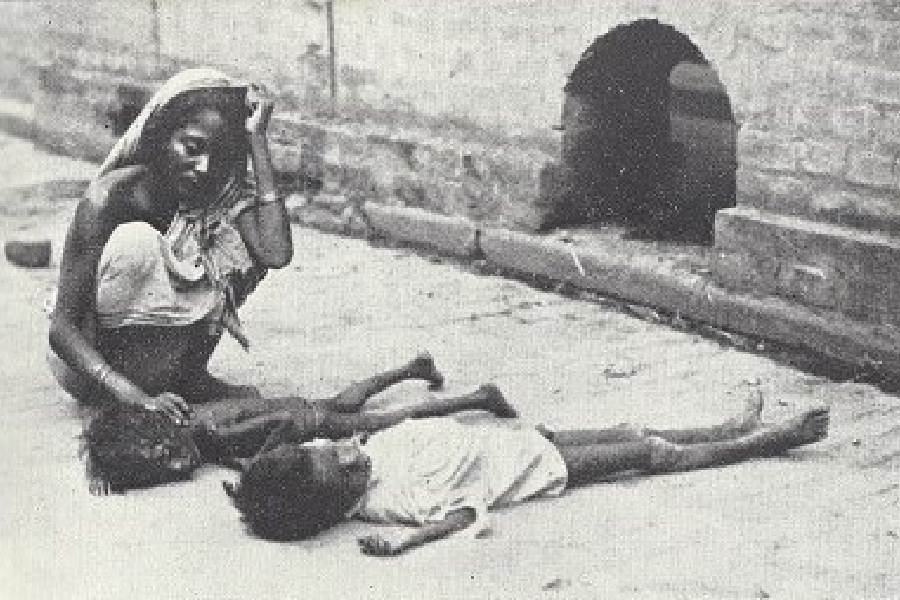On this day Richard Becher, the British resident at the Murshidabad Durbar, estimated that three in every eight people had died in the area under his charge because of the Great Bengal Famine. On July 12, Becher claimed that 500 people were perishing in Murshidabad every day and the condition was far worse in the villages.
Failure of monsoon, which led to a great failure in crop and the fact that the East India Company, given the right to collect taxes in Bengal, Bihar and Odisha by the Mughal emperor, had farmed out tax-collection and did not provide relief, were some of the major factors. The company, the de facto ruler of Bengal by then, did not pay heed to warnings of famine.
It was estimated that between 7-10 million people had died in Bengal and Bihar during the famine. Some later historians have claimed that the figure could have been smaller. But it was still in millions.
